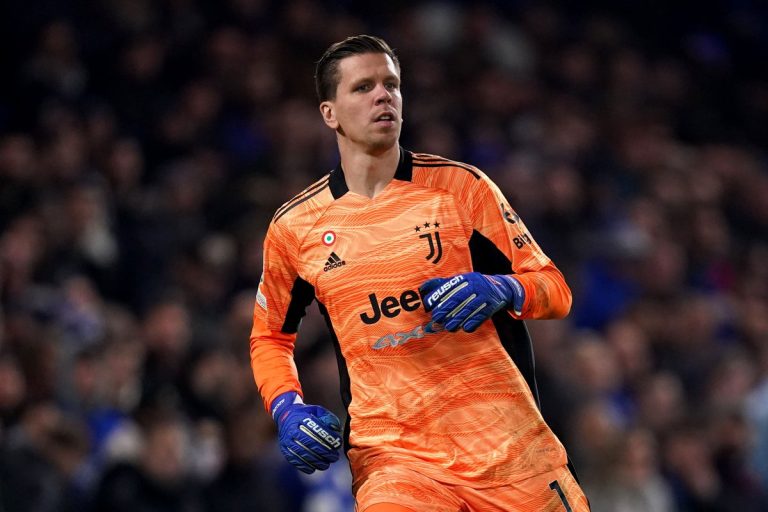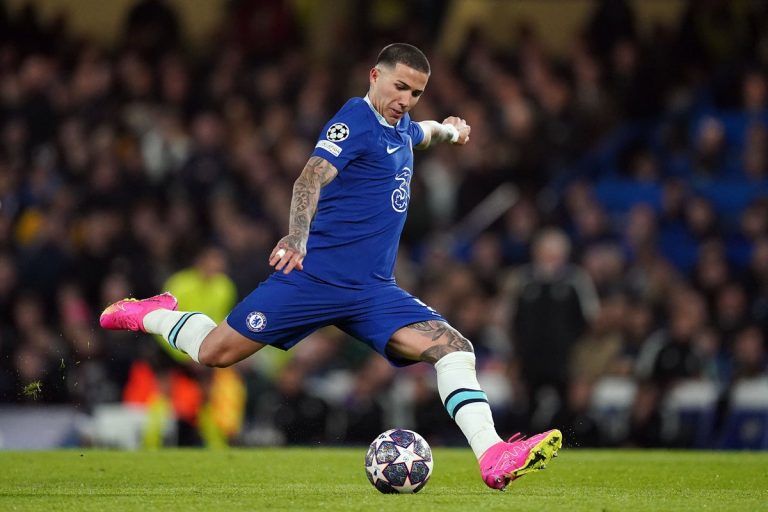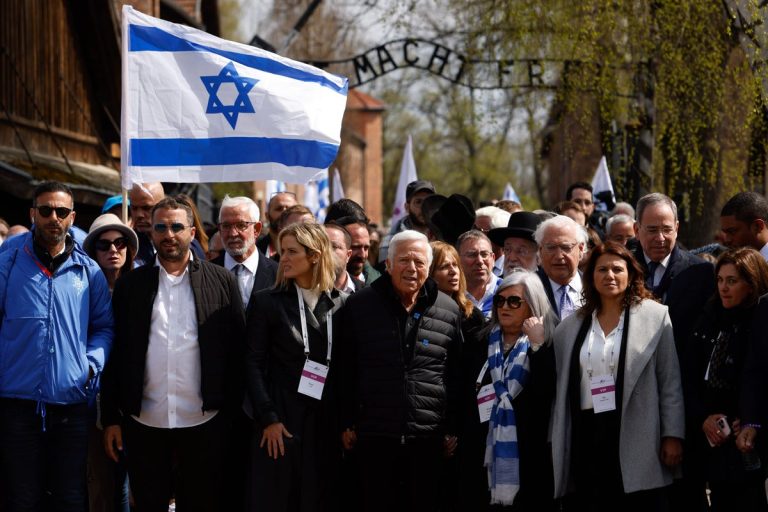Russia-Ukraine war: Russia’s top general visits troops after capture of Avdiivka | World news

Key events
Show key events only
Please turn on JavaScript to use this feature
Jon Henley
My colleague, the Guardian’s Europe correspondent Jon Henley, has written a piece on an EU-wide survey that suggests barely 10% of Europeans now believe Ukraine can defeat Russia. You can read more here:
Support for Ukraine among Europeans remains broad, but nearly two years after the full-scale invasion barely 10% now believe it can defeat Russia, according to an EU-wide survey – with some form of “compromise settlement” seen as the most likely end point.
The shift in sentiment – this time last year, more Europeans than not said Ukraine must regain all its lost territory – will demand that politicians take a more “realistic” approach that focuses on defining what an acceptable peace must actually mean, the report’s authors argue.
“In order to make the case for continued European support for Ukraine, EU leaders will need to change how they talk about the war,” said co-author Mark Leonard of the European Council on Foreign Relations (ECFR), which commissioned the polling.
Most Europeans “are desperate to prevent a Russian victory” but do not believe Kyiv can win militarily, Leonard said, meaning that the most convincing argument for an increasingly sceptical public was that continuing aid “could lead to a sustainable, negotiated peace that favours Kyiv – rather than a victory for Putin”.
Russian court to hear case brought by Navalny’s mother
A court in the Russia will next month hear a case brought by the mother of dead opposition leader Alexei Navalny, who has been prevented from seeing his body, his allies said on Wednesday, reports news agency Agence-France Presse (AFP).
Lyudmila Navalnaya has travelled to the remote IK-3 prison where her son died, but since Saturday, when she arrived, she has been prevented from seeing his body. On Tuesday, she appealed to Russian President Vladimir Putin for the release of her son’s body.
The mother of Russian opposition leader Alexei Navalny, Lyudmila Navalnaya, appeared in a video outside the Arctic penal colony where Navalny died on Friday. Photograph: AP
State news agency Tass reported that the court had received a complaint on “illegal acts” and that the hearing would take place behind closed doors. Navalny’s team said on social media that the court in the Arctic city of Salekhard would consider the case on 4 March – more than two weeks after Putin’s opponent died.
On Tuesday, Lyudmila Navalnaya broke her silence on her son’s death, calling on Putin to let her see her son’s body in a video address. “I appeal to you, Vladimir Putin. The solution to the issue depends only on you,” she said. “Let me finally see my son. I demand that Alexei’s body be released immediately so that I can bury him in a humane way.”
Navalny’s widow Yulia Navalnaya echoed the call, demanding authorities allow for him to be “buried with dignity.”
Putin has not commented or responded. The longtime Russian leader has been silent on the death in prison of his main political opponent.
Updated at 03.39 EST
Opening summary
It has gone 10am in Kyiv and 11am in Moscow. This is our latest Guardian blog covering all the military and diplomatic developments over the Russia-Ukraine conflict amid the continued ramifications of Alexei Navalny’s death, the Russian occupation of Avdiivka, farmers’ protests about grain imports in Poland and continued wrangling over US aid.
Meanwhile, we wake up to news today that barely 10% of Europeans now believe Ukraine can defeat Russia, according to an EU-wide survey – with some form of “compromise settlement” seen as the most likely end point.
Most Europeans “are desperate to prevent a Russian victory” but do not believe Kyiv can win militarily. You can read more here.
Also, according to Reuters, Russia’s top general, chief of the general staff Valery Gerasimov, visited troops fighting in Ukraine to discuss the next steps after taking Avdiivka, state media reported on Wednesday.
President Vladimir Putin said on Tuesday Russian troops would push further into Ukraine to build on their success on the battlefield after the fall of the town. Gerasimov was shown awarding medals to Russian troops involved in taking Avdiivka.
In other news:
Russia launched 19 attack drones at Ukraine over Tuesday night and Wednesday morning, as well as six missiles, with Ukrainian air defences destroying 13 of the drones and one missile, the Ukrainian air force said.
Unconfirmed reports on Russian social media channels accompanied by photos and video claimed 65 Russian soldiers were killed by a Ukrainian missile strike at Trudivske, in Volnovakha district of Ukraine’s Donetsk region on Tuesday. Reports said they had been ordered to line up awaiting a commanding officer, leaving them vulnerable to attack, on what was said to be a training ground. Footage showed many bodies lying in a churned-up field. More were injured, reports said.
Eleven Ukrainian children who had been taken away by Russia crossed the border from Belarus back into Ukraine on Tuesday evening. At a humanitarian crossing on the Belarus border, the children hugged waiting family members. Oleksandr, 16, one of the oldest returned, said: “My new life is starting,” describing his “joy and slight nerves”. The children had been received by Qatar’s embassy in Moscow on Monday under a scheme mediated by the Qataris.
Russia’s FSB security services said it had arrested a US-Russian woman suspected of treason for raising funds for the Ukrainian army. The FSB in the central Urals city of Ekaterinburg said the 33-year-old woman was a resident of Los Angeles with dual citizenship. A Russian legal NGO said the woman, named by Russian media as Ksenia Khavana, may stand accused of transferring $51 (£40) to a Ukrainian charity.






